|
 Secure Site
Secure Site
|
 |
Archive for the 'Well-being' Category
 How to Create a Stress-Free Life Kathleen Hall is one of the nation’s noted experts on stress management — she’s consoled Katrina survivors, counseled victims of domestic abuse, and advised families in hospitals coping with cancer and AIDS. But she didn’t always hold this title.
More than 20 years ago, Hall was a successful stockbroker on Wall Street, with a supportive husband and two healthy children. But the late nights, high-stakes pressure, and stressful commute wore at her over the years, until one day she snapped. She quit her job, retreated for six months to a remote cabin in Clarksville, Georgia, and spent the next seven years pursuing degrees in divinity and spirituality.
On her journey to a stress-free life, here’s what she learned.
Hall adopted a powerful but surprisingly simple mantra — SELF, an acronym for serenity, exercise, love, and food — and started teaching it to others to great effect. These “four roots of real happiness” may seem almost too easy, but she insists they have a centering effect in even the worst of circumstances.
Making time for serenity creates space in our lives for meditation and stress reduction; exercise benefits the spirit and mind as well as the body; love and friendship bring physiological and emotional rewards; and nourishing food, consciously consumed, feeds the senses in a deeply satisfying way.
It’s these simple things that keep us balanced, she says, and they make up Hall’s 10 secrets to a stress-free life.
One of the ultimate Zen like experiences is waking-up from a great slumber refreshed and energized. Your mind and body are harmoniously one, both alert and focused. Having a refreshed mind and body are two keys to a natural and Zen lifestyle. Waking up in the morning should not be a loud and abrupt awakening, but rather it should be a peaceful positive experience. The right natural alarm clock can transition your deep and tranquil sleep into a serene start to consciousness. Imagine a long-resonating Tibetan bell-like chime waking you up to a beautiful morning experience.
The right alarm clock can be the most beneficial investment for you. With our Now & Zen natural alarm clock you are awakened more gradually and thus more naturally. Now & Zen is focused on creating a naturalistic lifestyle, and our clocks are an example of our philosophy.
adapted from Body + Soul Magazine
 Natural Sounding Alarm Clocks and Meditation Timers, The Digital Zen Alarm Clock in Solid Walnut Now & Zen – The Zen Alarm Clock Store
1638 Pearl Street
Boulder, CO 80302
(800) 779-6383
Posted in Beauty, Chime Alarm Clocks, intention, Meditation Timers, Meditation Tools, Natural Awakening, nature, wake up alarm clock, Well-being
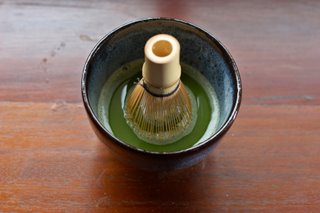 Timers for Tea Cermony Inspire your afternoon and refresh your senses by creating sacred space for a personal tea ceremony.
From the fragrant aromas to the delicate flavors to the simple comfort of a warm mug, tea is a meditation for the senses. It also creates space to unwind and reconnect.
Preparing it is a process, one that forces you to slow down and relax. “Tea is a gift from the earth,” says Diana Rosen, author of “Meditations With Tea,” “and enjoying it is a gift to yourself.”
By creating your own daily tea ritual in the afternoon when the day tends to drag, you can refresh your senses, refocus your thoughts, enjoy some peace, and — the best part — introduce a sacred moment into your day.
“The Zen Alarm Clock & Chime Timer’, uses soothing acoustic chimes that signal it’s time – gently and gradually.
Rather than an artificial recorded sound played through a speaker, the Zen Clock features an alloy chime bar similar to a wind chime. When the clock’s alarm is triggered, its chime produces a long-resonating, beautiful acoustic tone reminiscent of a temple gong.
adapted from Body + Soul Magazine, 2009
 Zen with Soothing Chime
The Zen Alarm Clock & Timer Store
1638 Pearl Street
Boulder, CO 80302
(800 779-6383
Posted in Well-being, Zen Timers
 zen like rock Meditation is not a difficult task that you must force upon yourself; once you experience that inner joy you will spontaneously want to meditate as much as you now look forward to outer pleasures. Nevertheless, it is very helpful to establish a routine to your meditative practice. Just as you eat at certain times of the day, and look forward to eating as those times approach, so too, by developing the habit of meditating at the same time each day your whole being—your body, breath, and mind—will look forward to meditating at that time. You should sit down every day at exactly the same time. Establish a specific time for your practice and do your practice every day at that time.
adapted from Yoga International by Swami Rama
Use our unique “Zen Clock” which functions as a Yoga & Meditation Timer. It features a long-resonating acoustic chime that brings your meditation or yoga session to a gradual close, preserving the environment of stillness while also acting as an effective time signal. Our Yoga Timer & Clock can be programmed to chime at the end of the meditation or yoga session or periodically throughout the session as a kind of sonic yantra. The beauty and functionality of the Zen Clock/Timer makes it a meditation tool that can actually help you “make time” for meditation in your life. Bring yourself back to balance.
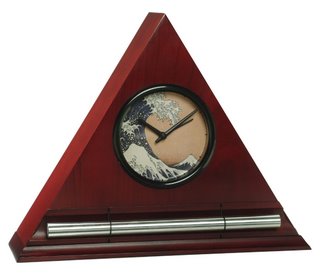 zen clocks and timers Now & Zen – The Zen Meditation Timer & Alarm Clock Store
1638 Pearl Street
Boulder, CO 80302
(800) 779-6383
Posted in Meditation Timers, Meditation Tools, mindfulness practice, Well-being
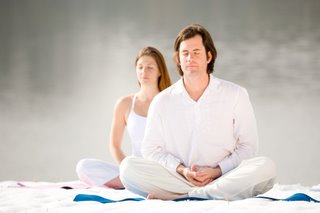 meditation Meditation is often something thought of as a practice reserved for monks or the spiritual elite. Happily, this is far from the truth. It’s been said that there are many paths up the mountain of meditation. We are living in a time where the mountain is closer and more accessible than it’s ever been. With the presence of the Internet and the ever-expanding global village, we have access to many paths that were far beyond reach only years ago. The seeker today has access to an unlimited wealth of information. With the click of the mouse you can access meditation techniques that are commonplace in remote parts of the world.
A really cool thing about living in our time is science and spirituality finding common ground. Today we have the science to quantify the benefits of meditation that the practitioner previously had to take on faith alone. Western medicine has traditionally shied away from mediation as a “prescription,” but now that there is concrete, scientific evidence proving the benefits of meditation, we are seeing the mainstream medical community look to mediation as a viable treatment option for a number of conditions and illnesses.
Let’s take a quick look at what science has shown us about our brainwaves: Every day, your brain is constantly operating on various wavelengths. While you are awake and interacting with others, you are in the Beta wavelength, at about 14 to 30 cycles per second (or hertz). When you get into the Alpha waves, you are still alert and paying attention, but get into a relaxed and calm state while your brain is at 9 to 13 hertz. When you get even more relaxed—and sometimes zoned out—you are in the Theta waves at about 4 to 8 hertz; we call this the meditative state. When you go further into a deep sleep, you are in the Delta waves at 1 to 3 hertz.
When it comes to dealing with stress, in many ways our brain is operating on the same basic circuitry as our ancient ancestors the cavemen, with a primal “fight, flight, or freeze” reaction to stress/danger. Our caveman brain can be triggered by stress—even perceived stress that may or may not be real—with a primal: “Oh my God! I’m being chased by a saber-toothed tiger!” Cortisol and adrenaline are then pumped into our systems, we experience a rise in glucose levels, and we are able to flee or fight the danger. If we take flight or fight, our bodies break down those chemicals— this is the original design of the flight response. When we are stuck in this position, all of our rest, digest, repair, and reproductive systems take a back seat to the emergency.
Unfortunately, the reality of our modern lifestyle is that most of us are sitting at a desk being chased by something like a deadline or the perceived danger of job loss (not by an actual saber-toothed tiger), but our brains react much the sameway and those chemicals in our bodies turn into figurative shards of glass when they’re not being burned off by exercise.
So, how do we dissolve those shards and deal with the stress? There are many ways to do this, while exercise is one of the best ways to burn off the chemicals once they are unleashed, meditation is one of best preemptive methods for staying centered and being able to ask ourselves “Is this really a saber-tooth tiger chasing me?” We’ll talk later about slowing down our thoughts, but first, let’s look at how that meditative state in the Alpha/Theta brainwave pattern brings our bodies and some of those chemicals back into balance.
 Meditation: Access Deep Peace - Kitagawa Utamaro, Komuraski of the Tamaya, House After a Bath, 1795 When you meditate, you body releases DHEA (a chemical that promotes relaxation, memory, and reduces cardiovascular disease risk), serotonin levels rise and your blood pressure starts todrop. In meditation you are completely awake and alert, but at the same time still and quiet, coming into full consciousness of the present moment. Meditation brings us to a depth within ourselves where we can access our inner compass and our deep, inner calm: that place of peace and awareness we already have.
Take this metaphor by David Fontana, PhD: The sky itself is our true nature and true self, but there are clouds in the sky obscuring our view. The clouds represent our “monkey mind” or our constant mental chatter. In our normal Beta state, the clouds of our thoughts, worries, hopes, and fears are continually obscuring our view, and it is all but impossible to see the sky for what it is. Meditation is our tool to clear away the clouds and experience the vastness of the sky, and the vastness of our true being.
adapted from Natural Solutions Magazine, by Jill Englund, April 2011
Use our unique “Zen Clock” which functions as a Yoga Timer. It features a long-resonating acoustic chime that brings your meditation or yoga session to a gradual close, preserving the environment of stillness while also acting as an effective time signal. Our Yoga Timer & Clock can be programmed to chime at the end of the meditation or yoga session or periodically throughout the session as a kind of sonic yantra. The beauty and functionality of the Zen Clock/Timer makes it a meditation tool that can actually help you “make time” for meditation in your life. Bring yourself back to balance.
 timers for finding balance in your life Now & Zen – The Zen Clock & Timer Store
1638 Pearl Street
Boulder, CO 80302
(800) 779-6383
Posted in Meditation Timers, Meditation Tools, mindfulness practice, Well-being
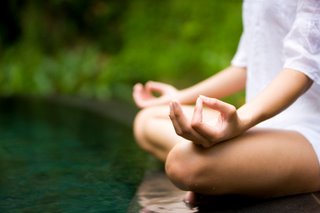 Meditation After meditating for a while, you start to respond instead of reacting to life. The term “react” is a monkey-mind or knee-jerk reaction. To “respond” is to actually think about acting consciously. Practicing meditation puts you in a position where you can take a breath, and actually respond to people and situations, especially those that are stressful or challenging.
adapted from Natural Solutions Magazine, by Jill Englund, April 2011
Although meditation can be done in almost any context, practitioners usually employ a quiet, tranquil space, a meditation cushion or bench, and some kind of timing device to time the meditation session. Ideally, the more these accoutrements can be integrated the better. Thus, it is conducive to a satisfying meditation practice to have a timer or clock that is tranquil and beautiful. Using a kitchen timer or beeper watch is less than ideal. And it was with these considerations in mind that we designed our digital Zen Alarm Clock and practice timer. This unique “Zen Clock” features a long-resonating acoustic chime that brings the meditation session to a gradual close, preserving the environment of stillness while also acting as an effective time signal.
 meditation tools and timers with chimes Now & Zen – The Zen Meditation Timer Store
1638 Pearl Street
Boulder, CO 80302
(800) 779-6383
Posted in Meditation Timers, Meditation Tools, mindfulness practice, Well-being
 Whether it’s yoga to reduce muscle tension, breathing to slow the heart rate, or an herbal massage to calm a racing mind, a simple routine can be the most effective and safest road to a better night’s sleep. There is growing evidence that small behavioral changes can make a big difference in getting some good shuteye. A 2006 study published in the Journal of the American Medical Association showed that participants who made modifications like reducing stimuli in the bedroom and learning relaxation techniques improved their sleep more than those who took drugs. Whether it’s yoga to reduce muscle tension, breathing to slow the heart rate, or an herbal massage to calm a racing mind, a simple routine can be the most effective and safest road to a better night’s sleep. There is growing evidence that small behavioral changes can make a big difference in getting some good shuteye. A 2006 study published in the Journal of the American Medical Association showed that participants who made modifications like reducing stimuli in the bedroom and learning relaxation techniques improved their sleep more than those who took drugs.
adapted from Yoga Journal
To find out which rituals will work best for you, it helps to understand insomnia from an Ayurvedic perspective. Yoga’s sister science and India’s oldest known system of medicine, Ayurveda is based on the idea that the life force that exists in all of us manifests as three different energies, or doshas, known as vata, pitta, and kapha. Though everyone has some of each dosha, most people tend to have an abundance of one or two.
Vata, ruled by air and ether, governs movement in the body. Pitta, ruled by fire, governs digestion and the metabolism. And kapha, ruled by earth and water, governs your physical structure and fluid balance. Ayurveda categorizes insomnia as a vata imbalance, because vata is controlled by air—and air controls the nervous system. Calming yoga and Ayurvedic rituals reduce vata in the body.
adapted from Yoga Journal, by Kelly McGonigal
Boulder, Colorado—an innovative company has taken one of life’s most unpleasant experiences (being startled awake by your alarm clock early Monday morning), and transformed it into something to actually look forward to. “The Zen Alarm Clock,” uses soothing acoustic chimes that awaken users gently and gradually, making waking up a real pleasure. Rather than an artificial recorded sound played through a speaker, the Zen Clock features an alloy chime bar similar to a wind chime. When the clock’s alarm is triggered, its chime produces a long-resonating, beautiful acoustic tone reminiscent of a temple gong. Then, as the ring tone gradually fades away, the clock remains silent until it automatically strikes again three minutes later. The frequency of the chime strikes gradually increase over ten-minutes, eventually striking every five seconds, so they are guaranteed to wake up even the heaviest sleeper. This gentle, ten-minute “progressive awakening” leaves users feeling less groggy, and even helps with dream recall.
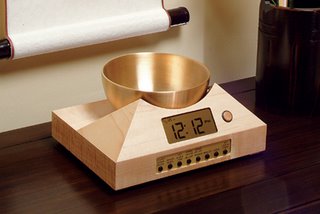 Meditation Timers and Alarm Clocks, tools for relaxation Now & Zen – The Peaceful Alarm Clock Store
1638 Pearl Street
Boulder, CO 80302
(800) 779-6383
Posted in Well-being, yoga, Yoga Timer
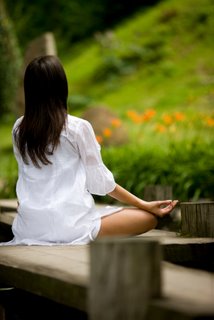 meditation One of the immediate benefits experienced through meditation is that you will be able to slow down and be conscious of your thoughts. Many times we assume the thoughts in our mind are real because we perceive and experience them. When we slow down our thoughts (especially those of stress and danger) and we look at our self-talk while we are flipping out, we are using that muscle in our mind we developed that allows us to be in the driver’s seat and examine our thoughts. Challenge them and ask yourself if those thoughts are helpful to you.
Use our unique “Zen Clock” which functions as a Yoga & Meditation Timer. It features a long-resonating acoustic chime that brings your meditation or yoga session to a gradual close, preserving the environment of stillness while also acting as an effective time signal. Our Yoga Timer & Clock can be programmed to chime at the end of the meditation or yoga session or periodically throughout the session as a kind of sonic yantra. The beauty and functionality of the Zen Clock/Timer makes it a meditation tool that can actually help you “make time” for meditation in your life. Bring yourself back to balance.
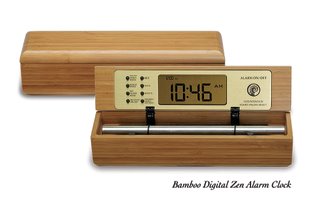 meditation timers adapted from Natural Solutions Magazine, by Jill Englund, April 2011
Now & Zen – The Zen Timer Shop
1638 Pearl Street
Boulder, CO 80302
(800) 779-6383
Posted in Meditation Timers, Meditation Tools, mindfulness practice, Well-being
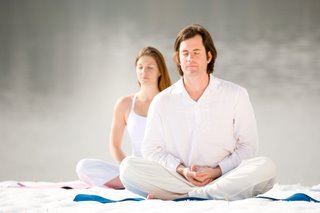 how to stay awake during meditation Most people agree that it’s easier to stay focused (and awake) during relaxation practices when there is an external source of directions to follow. A well-balanced asana class should include a brief relaxation practice, and there are many fine relaxation practices available on CD or cassette for home use. Try to choose one that is fairly simple and that focuses your attention inward rather than on intriguing melodies or complicated visualizations. To make the experience more personal, you could record your own favorite systematic relaxation exercise. Your capacity to remain awake will naturally increase with regular practice, and you should be able to internalize the exercise in short order. This will free you from instructors and recordings.
It is also helpful to maintain a systematic relaxation practice outside of regular asana classes (you’ll make it through the practice with much more alertness by doing some asana or stretching first to energize the body and shake off any feelings of sloth and inertia). Because the body expends a good amount of energy digesting food, a full stomach might cause sleepiness, so it’s best to wait two hours after meals to do a practice. And finally, avoid doing the practice in bed—you’ve already got a (good) habit of falling asleep in that space.
When the mind begins to drift away from waking reality, there is a crucial moment in which you realize, I’m falling asleep. Being aware in that moment is the first step toward pulling the mind back to the practice. Remind yourself that you are determined to stay awake and complete the practice you have begun. Sometimes that level of awareness is all it takes to establish a new relationship with your mind. But if that doesn’t work, give the mind a little activity to balance the resistance of tamas.
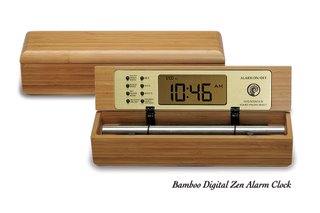 Bamboo Meditation Chime When you know you’re falling asleep, it’s time to direct the mind to a more dynamic object of attention. The most readily available object is the breath. While still quite subtle, it is more tangible than the sensations of the resting body, and its natural movements should give the mind just enough activity to overcome sleepiness. Yoke the mind to the breath and observe how the body reacts to the influx of refreshing oxygen. You will find that the breath lengthens and deepens when you give it your full attention, but there’s no need to get involved with this process.
If following the breath doesn’t give your awareness enough stimulation, shift your focus to the body, which is considerably more tangible than the breath. Try lightly tensing and releasing a specific muscle group (an arm, a leg, the face). Coordinate the muscle activity with the breath so that you tense on exhalation and release on inhalation. With the mind yoked to the body and breath, there is little room for it to wander off into slumber.
As long as your awareness is firmly in your body, you will get some benefit from the practice, even if you are not following a formal systematic relaxation sequence. The mindfulness you cultivate while attending to the body and breath will transfer to a systematic relaxation practice as your capacity increases. When you feel confident that you won’t drift into sleep, go ahead and pick up where you left off in the relaxation practice. If you are following directions from a taped or live teacher, don’t worry about having missed parts of the body, just jump back in wherever they are. If you are doing the practice without an external source of directions, pick up where you left off. This trains the mind to follow instructions and finish what it starts.
If these more tangible sensations don’t bring you back to waking awareness, you can roll over into the crocodile pose and proceed with the exercise in that position. The crocodile is still a resting pose, but it is very difficult to fall asleep in that position.
 Meditation Timer and Alarm Clock with Soothing Chime Keep in mind that a persistent inability to stay awake in relaxation practices may signal chronic fatigue, which is an increasingly common condition. It sounds strange, but you can be too tired to relax. An overactive schedule, stale food, and a sedentary lifestyle all erode your vitality. The physical aspects of yoga can provide an antidote, but only if we create the space in our lives to practice them with our full attention. The best way to make sure you stay awake during a systematic relaxation is to establish regular sleeping habits, get sufficient nourishment, and exercise regularly. In other words, take good care of yourself. It also helps to use relaxation practice as a preventative measure rather than an emergency intervention. And remember that practically everyone falls asleep during relaxation practices at one time or another, so don’t be too hard on yourself when it happens to you.
Although meditation can be done in almost any context, practitioners usually employ a quiet, tranquil space, a meditation cushion or bench, and some kind of timing device to time the meditation session. Ideally, the more these accoutrements can be integrated the better. Thus, it is conducive to a satisfying meditation practice to have a timer or clock that is tranquil and beautiful. Using a kitchen timer or beeper watch is less than ideal. And it was with these considerations in mind that we designed our digital Zen Alarm Clock and practice timer. This unique “Zen Clock” features a long-resonating acoustic chime that brings the meditation session to a gradual close, preserving the environment of stillness while also acting as an effective time signal.
adapted from Yoga Internation, January/February 2006
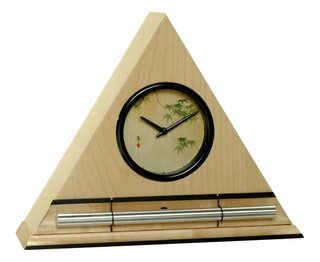 Meditation Timers and Chime Alarm Clocks for a Peaceful Awakening Now & Zen’s Meditation Timer Store
1638 Pearl Street
Boulder, CO 80302
(800) 779-6383
Posted in Well-being
 meditation A long-term benefit of meditation is that you are able to be in line with yourself and the world around you. You are way more alert and in a more peaceful state of being. Not to mention that you will have lower blood pressure, reduced risk of cardiovascular disease by increasing circulation, reduced insulin resistance, reduced mortality rates, and reduced heart-rate variability. In some ways, it’s the perfect antidote to the amount of stress we have in our daily lives.
“The Zen Alarm Clock & Chime Timer’, uses soothing acoustic chimes that signal it’s time – gently and gradually.
Rather than an artificial recorded sound played through a speaker, the Zen Clock features an alloy chime bar similar to a wind chime. When the clock’s alarm is triggered, its chime produces a long-resonating, beautiful acoustic tone reminiscent of a temple gong.
adapted from Natural Solutions Magazine, by Jill Englund, April 2011
 Timers with chime, perfect for meditating day or night...
Now & Zen’s Meditation & Yoga Timer Store
1638 Pearl Street
Boulder, CO 80302
(800) 779-6383
Posted in Meditation Timers, Meditation Tools, mindfulness practice, Well-being
 meditation How important is it to sit precisely at the same time each day? The discipline of maintaining a fixed meditation or prayer time is extraordinarily beneficial. That’s why this practice is maintained by so many traditions, from Islam with its calls to prayer, to the Divine Office (matins, lauds, etc.) that measures the day for many Christian monks and nuns.
But maintaining an unwavering time for meditation demands a level of discipline and detachment from affairs that may not be practical—or even desired. For those of us with families, there are many occasions when our responsibilities may conflict with our meditation time. So, while a fixed time for meditation is certainly praiseworthy, it may not be the way your personal practice evolves.
As an experiment, try sitting at approximately the same time each day. You’ll soon develop a rhythm that will gradually reinforce itself. After you’ve tried it for a while, you can then decide how strictly you would like, or are able, to observe a fixed meditation time.
Although meditation can be done in almost any context, practitioners usually employ a quiet, tranquil space, a meditation cushion or bench, and some kind of timing device to time the meditation session. Ideally, the more these accoutrements can be integrated the better. Thus, it is conducive to a satisfying meditation practice to have a timer or clock that is tranquil and beautiful. Using a kitchen timer or beeper watch is less than ideal. And it was with these considerations in mind that we designed our digital Zen Alarm Clock and practice timer. This unique “Zen Clock” features a long-resonating acoustic chime that brings the meditation session to a gradual close, preserving the environment of stillness while also acting as an effective time signal.
adapted from Yoga International by Rolf Sovik, May/June 2007
 bamboo meditation tools Now & Zen – The Meditation Timer Store
1638 Pearl Street
Boulder, CO 80302
(800) 779-6383
Posted in Meditation Timers, Meditation Tools, mindfulness practice, Well-being
« Previous Page — « Previous Entries
Next Entries » — Next Page »
|
|
|
|